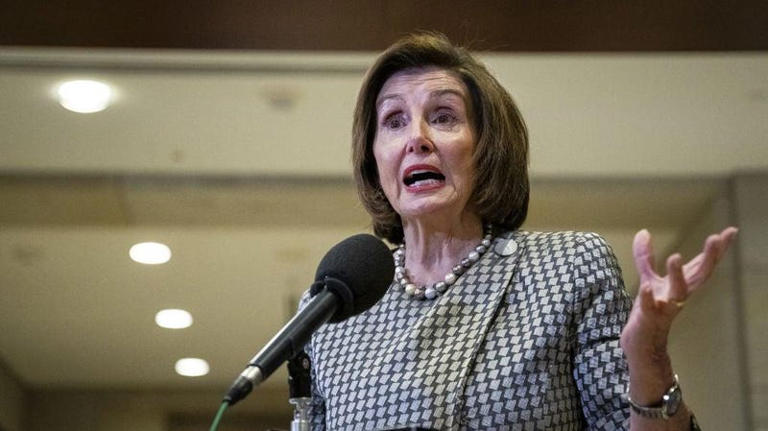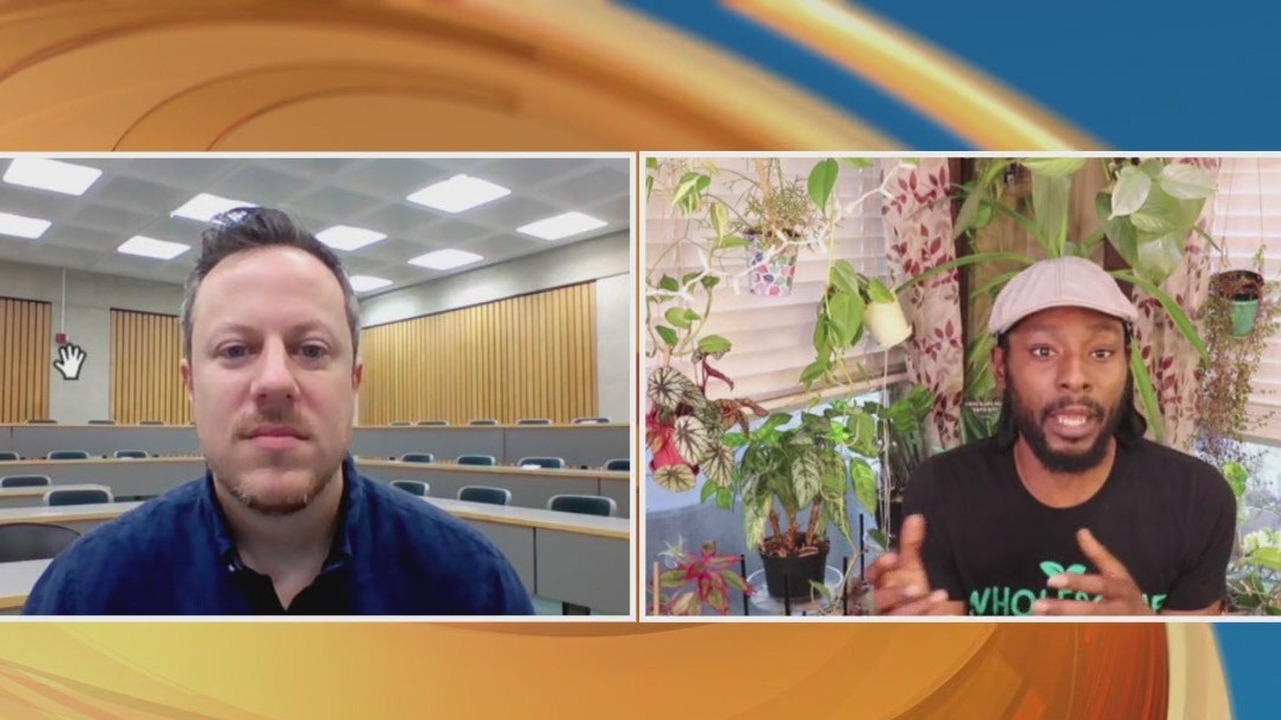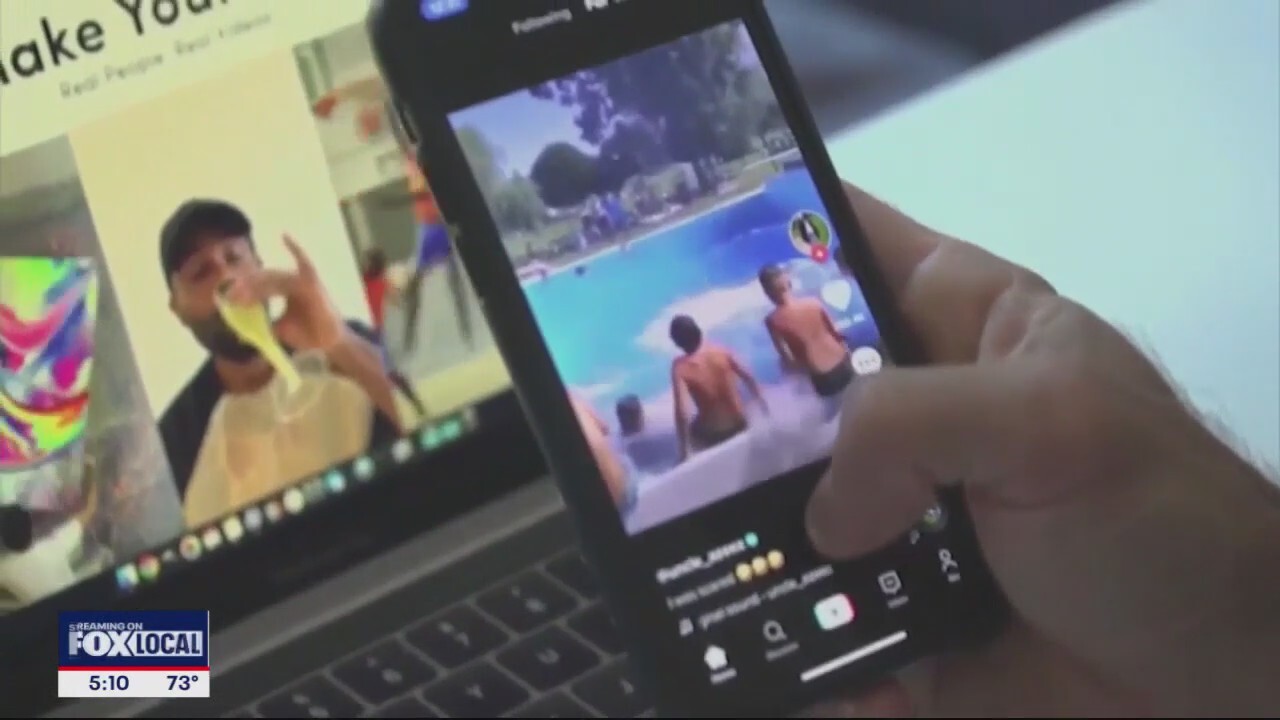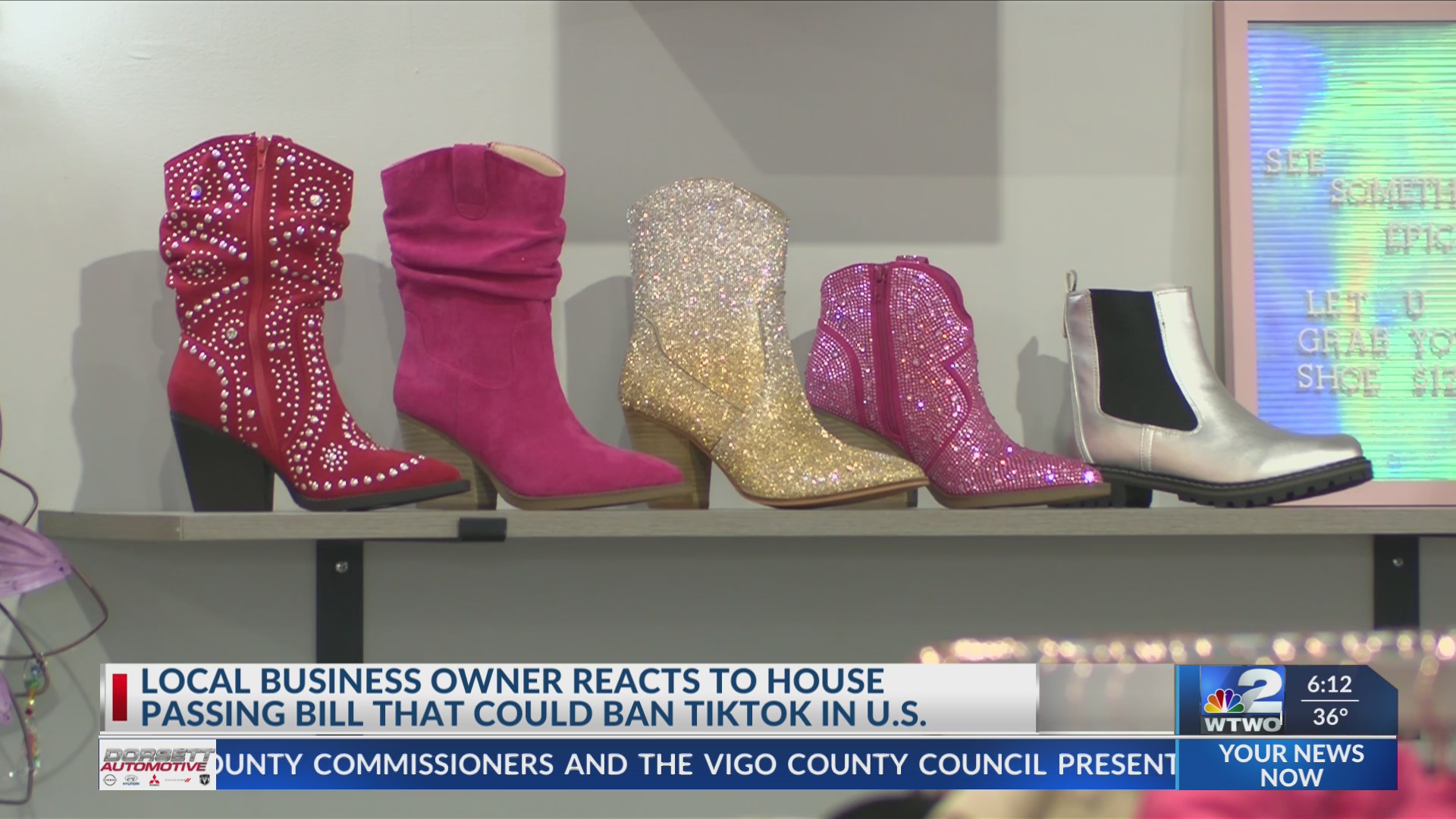Story by Thomas Germain • 3h •Gizmodo

Speaker Nancy Pelosi© Photo: Bloomberg / Contributor (Getty Images)
Financial disclosures show that members of Congress who voted for the so-called “TikTok ban” last week may own between $29 million and $126 million worth of stock in competing tech companies, according to data from Quiver Quantitative, a company that tracks congressional investments. Among the 352 members of the House of Representatives who voted “yes” on the bill, 44 reported they own shares of companies including Amazon, Google, Meta, Microsoft, and Snap—all corporations that could stand to benefit if TikTok is forced into a sale or a full-on ban.
Because Congress scuttled an effort to make their financial disclosures easily searchable, the details on these investments are hard to come by. Quiver Quantitative can only parse online filings. Some members file their financial disclosures by hand, and that information isn’t present in the data set. There are several other caveats to consider. Members of Congress have to report stock transactions within 45 days and disclose their overall stock holdings annually. Because there’s a grace period in both cases, the most recent information dates back to earlier this year, before the TikTok vote. Officials also don’t have to report the exact value of these investments, but instead have to disclose a range ($15,001 to $50,000 of Microsoft stock, for example). The value of the stocks has also changed since reports were filed.
Still, the data gives a useful indication of Congress’s finances. “Even if members of Congress are able to make completely unbiased decisions without any consideration of their personal stake, I think that even just the possibility of conflict of interest is harmful enough,” said Christopher Kardatzke, co-founder of Quiver Quantitative.

Speaker Nancy Pelosi© Photo: Bloomberg / Contributor (Getty Images)
Financial disclosures show that members of Congress who voted for the so-called “TikTok ban” last week may own between $29 million and $126 million worth of stock in competing tech companies, according to data from Quiver Quantitative, a company that tracks congressional investments. Among the 352 members of the House of Representatives who voted “yes” on the bill, 44 reported they own shares of companies including Amazon, Google, Meta, Microsoft, and Snap—all corporations that could stand to benefit if TikTok is forced into a sale or a full-on ban.
Because Congress scuttled an effort to make their financial disclosures easily searchable, the details on these investments are hard to come by. Quiver Quantitative can only parse online filings. Some members file their financial disclosures by hand, and that information isn’t present in the data set. There are several other caveats to consider. Members of Congress have to report stock transactions within 45 days and disclose their overall stock holdings annually. Because there’s a grace period in both cases, the most recent information dates back to earlier this year, before the TikTok vote. Officials also don’t have to report the exact value of these investments, but instead have to disclose a range ($15,001 to $50,000 of Microsoft stock, for example). The value of the stocks has also changed since reports were filed.
Still, the data gives a useful indication of Congress’s finances. “Even if members of Congress are able to make completely unbiased decisions without any consideration of their personal stake, I think that even just the possibility of conflict of interest is harmful enough,” said Christopher Kardatzke, co-founder of Quiver Quantitative.
Related video: Anyone who's not in favor of a TikTok ban might themselves be a foreign agent: Bedrock's Geoff Lewis (CNBC) Duration 5:55 View on Watch
The list of representatives with tech investments who voted for the bill covers 21 Democrats and 23 Republicans, including some big names such as Speaker Nancy Pelosi (D., CA.) and Rep. Dan Crenshaw (R., TX.).
Pelosi tops the list with disclosures of $15 million to $76 million of worth tech investments. Other top congressional tech investors include Rep. Josh Gottheimer (D., N.J.) who reported holding $6 million to $31 million of tech stocks and Rep. Daniel Goldman (D., N.Y.) with $2 million to $8 million. The top Republican investors include Rep. Kevin Hern (R., OK.), who disclosed over $500,000 to $1 million of tech stock, and Rep. David Kustoff (R. TN.), with about $300,00 to $800,000 worth of reported shares.
“Your insinuation is completely ridiculous and lacks basic research. In October of 2022, Rep. Crenshaw bought 20 shares of Google for a whopping $2,082, he bought 10 shares of META for a whopping $1,349 and he bought 15 shares of Amazon for a whopping $1,807,” said Corry Schiermeyer, spokesperson for Rep. Crenshaw. “He has not traded any of these stocks since that time. The insinuation that he is insider trading is borderline libelous as you are accusing him of a crime without any facts to back it up.” It’s worth noting that Crenshaw’s self-reported stock holdings are relatively minimal compared to some of his colleagues.
The other congress members mentioned in this story did not immediately respond to requests for comment.
The fact that members of Congress own tech stocks isn’t proof of corruption or bias. According to Debra Perlin, Policy Director at the advocacy group Citizens for Responsibility and Ethics in Washington, the problem is the mere fact that Americans even have to ask questions about whether or not politicians’ financial interests factor into their decisions in the first place.
“Today’s news that members of Congress who voted to ban TikTok own millions of dollars in stock in companies that would benefit financially if TikTok were forced to sell or leave the country builds on a pattern of conduct across industries—including in the pharmaceutical industry, airline industry, and defense industry,” Perlin said. “Constituents are left to wonder if their elected representatives are voting in the best interests of their constituents or in the best interests of their financial bottom line.”
Since 2020, politicians on both sides of the aisle have banged the drum against TikTok, accusing the company of siphoning user data to the Chinese Communist Party. The government has also accused TikTok of manipulating its algorithm in order to advance China’s geopolitical agenda.
A TikTok spokesperson declined to comment for this article.
“The reality is, that TikTok’s parent company ByteDance has direct ties to and is controlled by the Chinese Communist Party which harvests data from the American people and can use it against us,” Schiermeyer said. “It is a national security threat for TikTok to be Chinese owned and operated full stop.”
Like most large Chinese companies, TikTok’s parent company ByteDance has ties to the Chinese Communist Party. However, there has never been any concrete evidence presented to the public that TikTok has shared data with the Chinese government, nor has it been demonstrated that China has interfered with content on the American version of the TikTok app.
Some elected officials, such as Senator Rand Paul, (R., K.Y.) have said that’s because these concerns are hypothetical, and that evidence doesn’t exist. Reporting has also demonstrated that American apps such as Facebook, Instagram, Snapchat, X/Twitter, and YouTube have all partnered with Chinese advertising technology companies, meaning they’ve sent American user data to servers in China. That means American apps expose sensitive information to similar risks.
It would be a massive boon to Meta and Snap if the government successfully kneecaps TikTok, but experts and analysts agree that other major players in the tech industry may benefit as well.
TikTok doesn’t just make money on advertising. It also has a growing e-commerce business that sells directly to consumers, and it’s a prime venue for consumers to discover products in the first place
“Meta and Snap would be obvious beneficiaries, and people are discovering products to buy on TikTok all the time. If that stops, the odds they might find products on Amazon instead go up,” said Brad Ericson, a stock analyst at RBC Capital. “The volume TikTok is producing may not have a significant impact on Amazon’s business, but it helps directionally. YouTube would absolutely benefit as well.”
TikTok is the only real threat to Google’s YouTube, and recent reports suggest that a growing contingent of young people use TikTok as a search engine rather than Google. Amazon, TikTok, and Google are all competitors in the digital advertising market as well, particularly when it comes to retail advertising, though Google is a clear leader. In general, Microsoft and TikTok aren’t direct competitors. However, Microsoft was a top contender to buy TikTok when former President Trump attempted to force a sale of the app back in 2020. If the app went back on sale, Microsoft could be a suitor.
Amazon, Google, Meta, Microsoft, and Snap did not immediately respond to requests for comment.
The bill doesn’t directly call for a ban on TikTok. Instead, it would force TikTok’s Chinese Parent company ByteDance to sell the app. There are countless companies and investors who would jump at the chance to buy TikTok. However, TikTok maintains that the bill is just a thinly veiled ban. It would only allow six months for a sale, which is a short period of time for such a massive, complex business deal.
However, there’s no guarantee the bill will pass. The House of Representatives mobilized swiftly to get its TikTok legislation out the door, introducing and passing the legislation in just 8 days with an overwhelming majority. But there’s far more opposition to interfering with TikTok’s business in the Senate, and Democratic Majority Leader Chuck Schumer indicated he’s unsure whether he’ll even bring the bill up for a vote. However, several prominent Senators are calling for the government to declassify information shared at a recent intelligence briefing about the influence and reach of TikTok.
Content creators worry about miseducation in a world without TikTok

Giovanna Gonzalez of Chicago demonstrates outside the U.S. Capitol following a press conference by TikTok creators to voice their opposition to the “Protecting Americans from Foreign Adversary Controlled Applications Act," pending crackdown legislation on TikTok in the House of Representatives, on Capitol Hill in Washington, U.S., March 12, 2024.
From videos on subject-verb agreement to vocabulary, Ms. James believes that her legacy is to help the world through education and fears a ban would be detrimental.
"I think that TikTok is a wealth of knowledge," NaomiHearts, a content creator known by her 1.1 million followers for her TikTok videos about fatphobia and trans Chicana identity, told Reuters.
She also fears that the ban will silence diverse, informative content, including her own.
However, University of Southern California professor Karen North warns her students that personal data is in danger on TikTok.
"My concern with TikTok is less about what information is provided or manipulated or whether it's skewed toward one message or another," North, the founder and former director of USC Annenberg’s Digital Social Media program told Reuters.
"It's more toward what kind of personal information are people voluntarily giving up to an entity that does not have the same standards for privacy that we (the United States) do. That's the big issue with TikTok," she added.
North, a former White House employee for the Clinton administration at Capitol Hill, worries the Chinese company’s use of functions like facial recognition and location tracking creates threats that outweigh the engaging benefits of the app, including in academia.
Content creator Dr. Anthony Youn, known for his educational TikTok videos exploring his profession as a plastic surgeon, believes the ban would have significant drawbacks on information accessibility.
"There's a huge segment of TikTok where you get your news, so it's about being educated," Dr. Youn, who has 8.4 million followers, told Reuters.
Similarly, NaomiHearts feels the ban is less about protecting data, as other apps also collect personal information, and more about denying consumers informative content.
(Reporting by Danielle Broadway and David Shepardson; Editing by Peter Graff)

Giovanna Gonzalez of Chicago demonstrates outside the U.S. Capitol following a press conference by TikTok creators to voice their opposition to the “Protecting Americans from Foreign Adversary Controlled Applications Act," pending crackdown legislation on TikTok in the House of Representatives, on Capitol Hill in Washington, U.S., March 12, 2024.
REUTERS/Craig Hudson/File Photo© Thomson Reuters
By Danielle Broadway
LOS ANGELES (Reuters) - It was December 2020 during the height of the COVID-19 pandemic when "Ms. James", a public school teacher in a small rural Southern town, realized that her virtual students were not watching the grammar lessons she assigned them. That is, until she posted them on TikTok.

U.S. flag and TikTok logo are seen through broken glass in this illustration taken March 20, 2024.
By Danielle Broadway
LOS ANGELES (Reuters) - It was December 2020 during the height of the COVID-19 pandemic when "Ms. James", a public school teacher in a small rural Southern town, realized that her virtual students were not watching the grammar lessons she assigned them. That is, until she posted them on TikTok.

U.S. flag and TikTok logo are seen through broken glass in this illustration taken March 20, 2024.
REUTERS/Dado Ruvic/Illustration© Thomson Reuters
Everything changed when she learned about the social media platform and created her profile as @iamthatenglishteacher.
"In a day, I had one thousand followers, in a week I had ten thousand, and in six weeks I had one hundred thousand followers," she told Reuters.
"Within six months, I had a million and a half," added the teacher of fifteen years, who asked not to use her full name for privacy
Now, she has 5.8 million followers on TikTok, but her educational content now faces a threat.
The U.S. House of Representatives overwhelmingly passed a bill last week that will give TikTok's Chinese owner ByteDance about six months to divest the U.S. assets of the short-video app, or face a ban. It's the greatest threat since the Trump administration to the app, and to the content creators who reach wide audiences and often earn their living on it.
"When you talk about the ban, you are talking about taking access to high quality educational videos away from people who have used it to enhance their education," Ms. James said.
While her TikTok lessons are used by students ranging from elementary school to college, most of her followers are English as a Second Language students(ESL)students from the Phillipines as well as homeschooled students.
Everything changed when she learned about the social media platform and created her profile as @iamthatenglishteacher.
"In a day, I had one thousand followers, in a week I had ten thousand, and in six weeks I had one hundred thousand followers," she told Reuters.
"Within six months, I had a million and a half," added the teacher of fifteen years, who asked not to use her full name for privacy
Now, she has 5.8 million followers on TikTok, but her educational content now faces a threat.
The U.S. House of Representatives overwhelmingly passed a bill last week that will give TikTok's Chinese owner ByteDance about six months to divest the U.S. assets of the short-video app, or face a ban. It's the greatest threat since the Trump administration to the app, and to the content creators who reach wide audiences and often earn their living on it.
"When you talk about the ban, you are talking about taking access to high quality educational videos away from people who have used it to enhance their education," Ms. James said.
While her TikTok lessons are used by students ranging from elementary school to college, most of her followers are English as a Second Language students(ESL)students from the Phillipines as well as homeschooled students.
Related video: Social Media Monday: TikTok troubles (FOX 26 Houston)Duration 4:45 View on Watch
From videos on subject-verb agreement to vocabulary, Ms. James believes that her legacy is to help the world through education and fears a ban would be detrimental.
"I think that TikTok is a wealth of knowledge," NaomiHearts, a content creator known by her 1.1 million followers for her TikTok videos about fatphobia and trans Chicana identity, told Reuters.
She also fears that the ban will silence diverse, informative content, including her own.
However, University of Southern California professor Karen North warns her students that personal data is in danger on TikTok.
"My concern with TikTok is less about what information is provided or manipulated or whether it's skewed toward one message or another," North, the founder and former director of USC Annenberg’s Digital Social Media program told Reuters.
"It's more toward what kind of personal information are people voluntarily giving up to an entity that does not have the same standards for privacy that we (the United States) do. That's the big issue with TikTok," she added.
North, a former White House employee for the Clinton administration at Capitol Hill, worries the Chinese company’s use of functions like facial recognition and location tracking creates threats that outweigh the engaging benefits of the app, including in academia.
Content creator Dr. Anthony Youn, known for his educational TikTok videos exploring his profession as a plastic surgeon, believes the ban would have significant drawbacks on information accessibility.
"There's a huge segment of TikTok where you get your news, so it's about being educated," Dr. Youn, who has 8.4 million followers, told Reuters.
Similarly, NaomiHearts feels the ban is less about protecting data, as other apps also collect personal information, and more about denying consumers informative content.
(Reporting by Danielle Broadway and David Shepardson; Editing by Peter Graff)




No comments:
Post a Comment